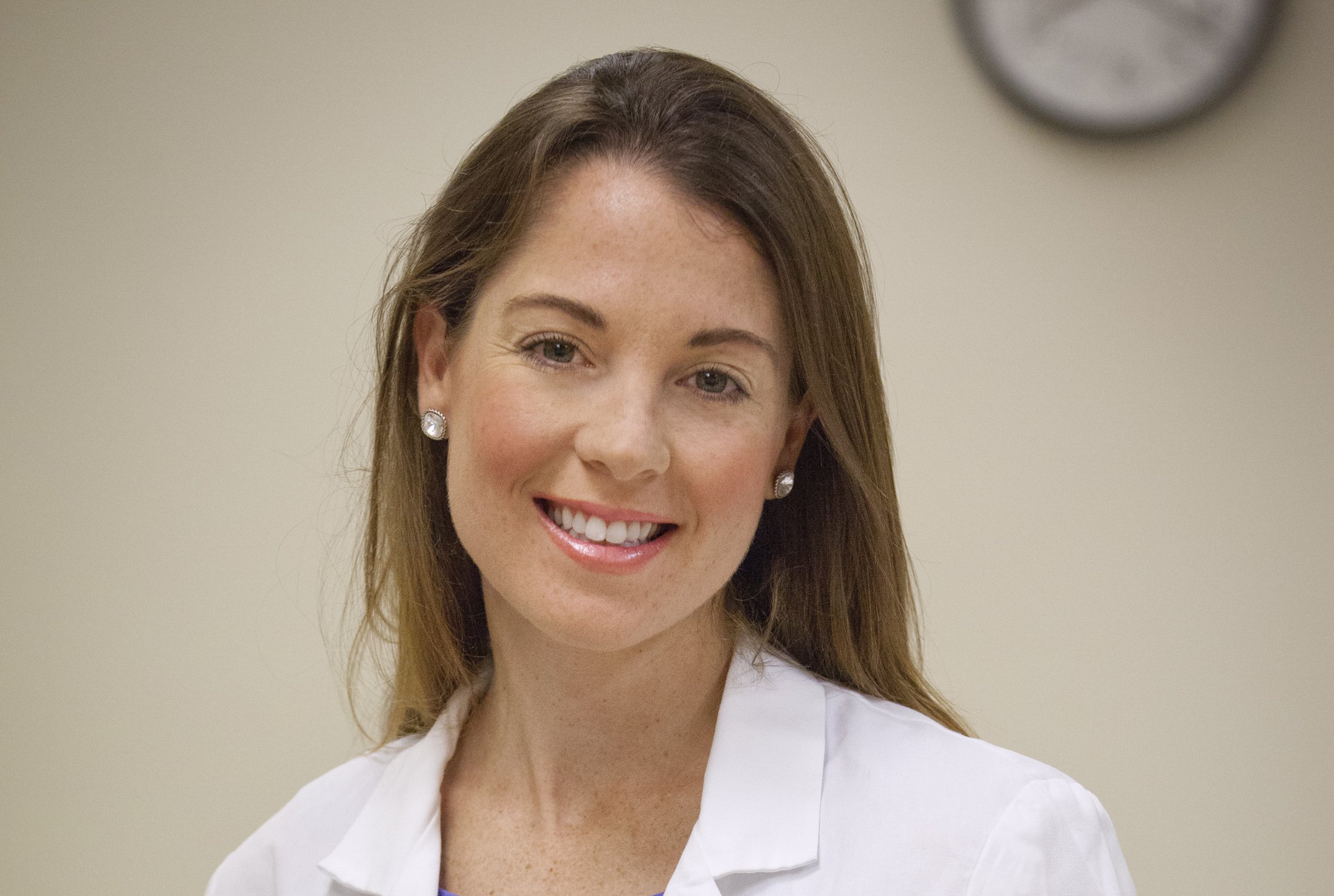As a neonatal nurse practitioner (NNP), Ashley Darcy-Mahoney, Ph.D., NNP, FAAN cares for the most vulnerable patients in the neonatal intensive care unit (NICU). However, her care for premature infants does not end there. She is also curious about the long-term neurodevelopmental outcomes of these babies, which led to her dual role as a nurse scientist. For her dedication to clinical care and her impressive body of research, she has been named next year’s Nurse Scholar in Residence for the National Academy of Medicine.
The research is detailed — from a developmental, educational, and even economic standpoint — birth to age 3 is the most critical time in the long-term trajectory of a child’s life. As a Nurse Scholar in Residence for the National Academy of Medicine (NAM), Dr. Darcy-Mahoney will join a premier science body that helps to inform public policy. “What I hope during my time at NAM is to be a voice for small babies and infants. To make sure we have policies — guided by good science — that do not forget about the important early years of life,” she said.
The value of research
Dr. Darcy-Mahoney’s career in research began during her undergraduate years, “where I developed skills about how and why to ask the right questions,” she said. Her research questions stem from both those things she wants to uncover and the questions she hears through her clinical work.
Her primary areas of research examine how “parents and parenting can intervene to help support long-term outcomes,” said Dr. Darcy-Mahoney. A critical program she helped developed through is called Talk With Me Baby, which began while she was still with Emory University. It was a statewide initiative in Georgia that expand to other areas. This program focuses on providing families with the tools and training they need to help engage early and often with their children through the first year of life.
Still, not all questions apply to all families. “A question we received over and over from our parents in Miami was, ‘Can we speak to our child in Spanish when we got home?’” There is ample research to prove the value for a child raised in a bilingual household. However, some questions existed about whether bilingualism would cause confusion and delays in speaking, reading, and other functions for a child born prematurely. That is largely a myth; it does not.
“We set out to do some studies,” she said. “Parents want to know these answers, so they are excited to participate in our studies.” Háblame Bebé, winner of the US Health Resources Services Administration (HRSA) Bridging the Word Gap Challenge in 2017, Háblame Bebé is a novel mobile phone application that promotes parent-child interaction and Spanish-English bilingualism.
Recruiting research subjects
“Once we get beyond the acute state in the NUCI, where babies are sick, and we are worried about mortality — once we get through that — parents want to know: What can I do to optimize my child’s outcome?” said Dr. Darcy-Mahoney.
Finding answers to these critical questions research depends on research subjects. Recruiting people to participate in studies happens in several ways; one of them is social media. For a recent study, she reported, “A third of our recruiting responses came through Twitter, LinkedIn, and Facebook.”
The target age of the parent or family member dictates the platform. “If we want to reach older parents or grandparents, we use Facebook; for younger parents, it is Instagram. For teen mothers, we use Snapchat. Thankfully my innovative research assistants know all about these various platforms,” said Dr. Darcy-Mahoney. The use of social media for recruiting subjects is done with full IRB approval.
Sharing outcomes
Social media is useful for both recruiting subjects and sharing research results. “It is a way to get information back to the community, to the people without access to journals where we publish. It is our obligation to make sure our findings are made available, so our parents and families have answers to those big questions that they helped us to answer,” she said.
Outreach to the community also includes speaking to preemie parenting groups, to other health professionals such as occupational/physical therapists and education experts such as teachers and librarians. “It is important to engage all of these stakeholders in our research findings,” said Dr. Darcy-Mahoney. “They will be supporting premature babies as they grow. They need to be ready as caregivers and educators to develop programs to benefit this special cohort of kids.”
Ashley Darcy-Mahoney, Ph.D., NNP, FAAN, completed her MSN and Ph.D. at the University of Pennsylvania, School of Nursing. She also earned a BSN from Georgetown University, School of Nursing and Health Studies. She is a Fellow of the American Academy of Nursing.
